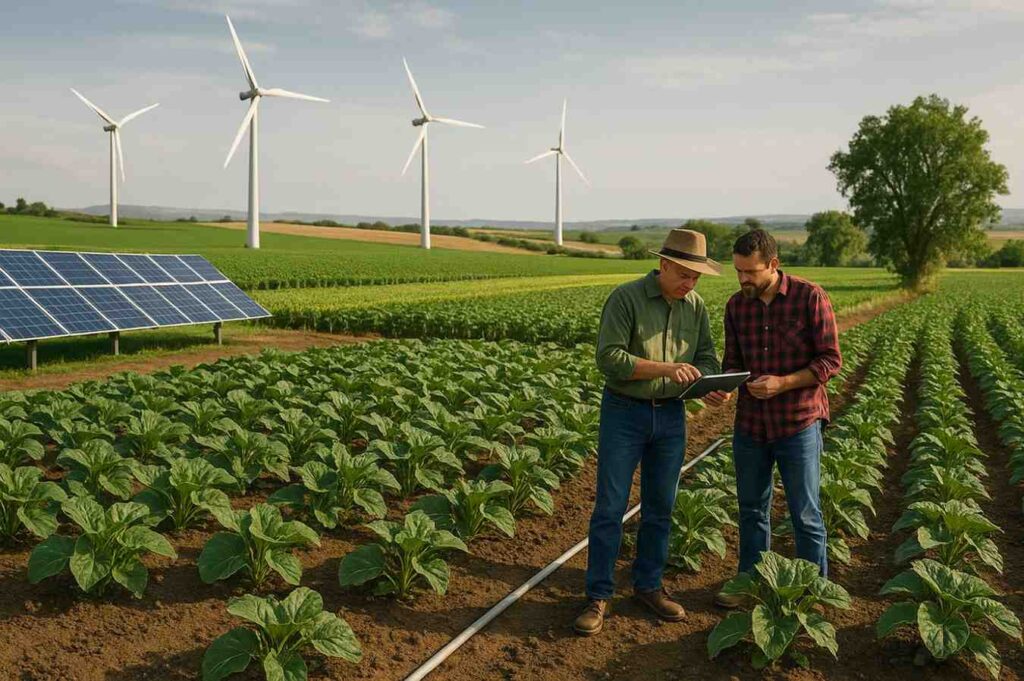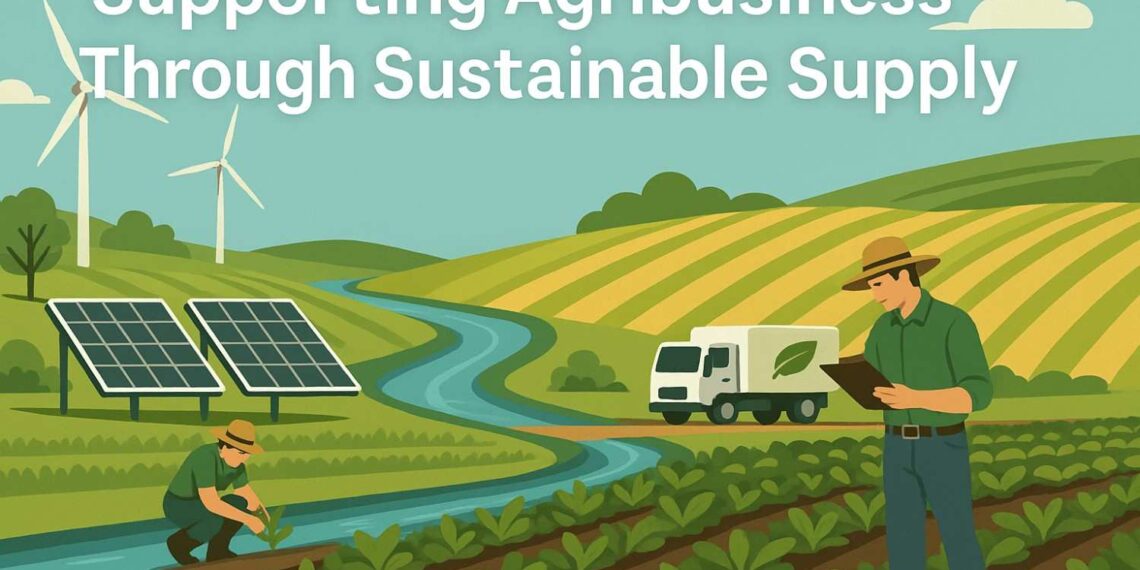A thriving agribusiness sector depends on more than just fertile soil and favorable weather. At its core, it relies on a consistent, reliable supply chain that can adapt to changing demands and environmental challenges. As the global population grows and resources become more strained, the need for sustainable practices has become more urgent than ever. Shifting toward a sustainable supply model is not just an ethical choice; it’s a strategic business decision that builds resilience, enhances brand reputation, and ensures long-term profitability.
For agribusinesses, this means re-evaluating every step of the process, from seed sourcing to final delivery. It involves building partnerships based on transparency, investing in technologies that reduce waste, and adopting practices that protect our natural ecosystems. By embracing sustainability, companies can meet the rising consumer demand for responsibly sourced products while future-proofing their operations against market volatility and environmental pressures. This guide explores how a commitment to a sustainable supply chain can strengthen the foundations of any modern agribusiness.
The Pillars of a Sustainable Agribusiness Supply Chain
A sustainable supply chain is built on several key principles that work together to create a more resilient and responsible system. Integrating these pillars helps agribusinesses mitigate risks, improve efficiency, and build stronger relationships with both suppliers and customers.

Traceability and Transparency
Consumers today want to know the story behind their food. They are increasingly interested in where their products come from, how they were grown, and the impact they have on the environment and local communities. Full transparency is no longer a “nice-to-have”—it’s a market expectation.
Implementing traceability systems allows businesses to track products from farm to fork. Technologies like blockchain and QR codes can provide customers with instant access to information about a product’s origin, cultivation methods, and journey through the supply chain. This transparency builds trust and loyalty, giving companies a significant competitive edge. It also allows for quicker responses to any safety or quality issues, protecting both the consumer and the brand.
Environmental Stewardship
Responsible environmental management is at the heart of a sustainable supply chain. This involves adopting practices that conserve natural resources, reduce carbon emissions, and promote biodiversity. Agribusinesses can implement various strategies to minimize their environmental footprint, such as:
- Water Conservation: Using drip irrigation and other water-saving technologies to reduce consumption.
- Soil Health: Employing techniques like cover cropping and no-till farming to maintain soil fertility and prevent erosion.
- Waste Reduction: Finding innovative ways to minimize waste, such as converting agricultural byproducts into energy or animal feed.
These practices not only benefit the planet but also often lead to cost savings through improved resource efficiency. For instance, healthier soil can lead to better crop yields with less need for chemical fertilizers.
Ethical Sourcing and Fair Labor
A truly sustainable supply chain prioritizes the well-being of every person involved. This means ensuring that farmers and workers receive fair wages, work in safe conditions, and are treated with respect. Ethical sourcing involves building long-term, collaborative relationships with suppliers who share these values.
By supporting fair labor practices, agribusinesses can contribute to the economic stability of farming communities and ensure a more reliable and motivated workforce. Certifications like Fair Trade provide a clear signal to consumers that a company is committed to social responsibility, further enhancing its brand image.
The Strategic Advantage of Sustainability
Adopting sustainable supply chain practices offers far more than just a positive public image. It delivers tangible business benefits that contribute to long-term success and growth.

Building Resilience Against Market Volatility
Supply chains that rely on a diverse network of responsible suppliers are better equipped to handle disruptions. Whether facing extreme weather events, political instability, or sudden shifts in market demand, a resilient supply chain can adapt more quickly. For example, sourcing bulk vegetable seeds from growers who use climate-resilient farming techniques can help ensure a stable supply even in challenging conditions. Diversifying sourcing locations also reduces dependency on a single region, spreading risk and improving stability.
Meeting Consumer and Investor Expectations
The demand for sustainable and ethically produced goods is on the rise. A Nielsen report found that 73% of global consumers are willing to change their consumption habits to reduce their environmental impact. By aligning with these values, agribusinesses can attract and retain a loyal customer base.
Similarly, investors are increasingly using environmental, social, and governance (ESG) criteria to evaluate companies. A strong commitment to sustainability can make a business more attractive to investors, opening up new funding opportunities and increasing its market valuation.
Forging a Sustainable Future
Integrating sustainability into your supply chain is not an overnight process but a continuous journey of improvement. It requires a clear vision, strong leadership, and collaboration with partners who share your commitment. By starting with small, measurable steps—like improving water management or increasing supply chain transparency—agribusinesses can gradually build a more resilient and responsible operation.
The future of agribusiness depends on our ability to create systems that are both productive and protective of our planet. Embracing a sustainable supply model is the most effective way to ensure that your business can thrive for generations to come while meeting the evolving needs of the world.







